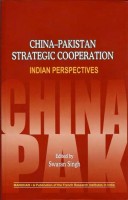Pakistan – In the Face of the Afghan Conflict 1979-1985 at the Turn of the Cold War
- Year :2003
- Pages :238
- Price :400Rs
- ISBN :81-8835-304-3
- Editor :India Research Press
It is paradoxical that though the Afghan conflict has inspired a great deal of writing little is known about its regional dimension. The first act – and also its symbol – in what some have described as a ‘new cold war’, it has often been viewed through the sole, misleading prism of the ideological confrontation, which formed the edifice of international relations till the collapse, towards the end of 1991, of the Soviet empire.
Pakistan played a special, and in many ways a crucial role in this conflict. Being the main outlying base of the Mujahideen and the principal, if not the sole country through which arms from the West to the resistance were transited, its role remains largely unknown.
The present work proposes to look for the motivations of Pakistan’s Afghan policy in the structure of the South Asian security complex. Its thesis is that the source of Pakistan’s objectives and its management of the Afghan conflict, is essentially, but not entirely, this country’s relationship with its neighbour, India. The choices made by Pakistan are mainly explained by an analysis of the structuring of this complex. Consequently, this brief study attempts to throw some light on the different elements of Pakistan’s foreign policy, and on their interactions. It is the importance of the Afghan conflict at the global level which allowed Pakistan, for the first time in its short history, to fuse these different elements, notably by obtaining economic and military aid from the United States, thus very partially reducing the disparity between its armed forces and those of India.









